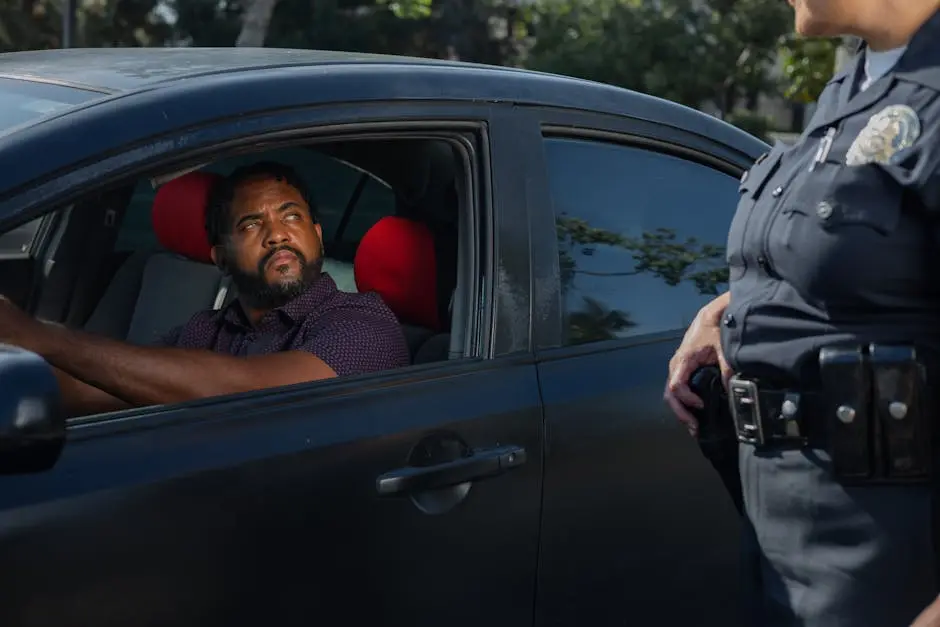Getting a traffic violation can be a stressful experience, especially if you’re not sure what to do next. In Fayetteville, understanding the process can greatly help you navigate the legalities involved. This guide will outline the essential steps you should take after receiving a traffic ticket, based on advice from an experienced traffic lawyer.
1. Stay Calm and Assess the Situation
The first step after receiving a violation is to take a deep breath and assess what just happened. Understandably, emotions can run high in these moments. Try to take a moment to calm your thoughts. Reflect on the circumstances leading up to the ticket—not to place blame or feel guilty, but to prepare yourself for the next steps.
Reflecting helps you regain focus and remember crucial details. Was the traffic situation confusing? Did something unexpected occur? These reflections will be beneficial as you consider your options moving forward.
2. Review the Ticket Details Carefully
Check for any errors on the ticket, such as wrong dates, vehicle information, or location. Even minor inaccuracies can play a significant role in your defense later on. For instance, if the ticket states a wrong date, you may have grounds for dismissal.
Additionally, note the fine print for court dates or deadlines for appealing the ticket. Keep track of these important elements, as missing a court date could lead to undesirable outcomes. A thorough review can save you time, money, and stress down the road.
3. Gather Evidence and Documentation
Collect evidence that could support your case. This may include photographs of the incident scene, witness statements, and any relevant documents like your driving record. Ensure you save these pieces of information in a well-organized manner.
If possible, reach out to any witnesses who might be willing to support your version of events. Their statements could prove invaluable in establishing your case, especially if they corroborate your account of the incident.
Having solid evidence will not only strengthen your case but also ease the process of working with your traffic lawyer. The more thorough your documentation, the better your chances of achieving a favorable outcome.
4. Understand Your Options
Learn about your options for contesting the violation. You may be able to plead not guilty, plead guilty with an explanation, or attend traffic school to mitigate penalties. Each option has its pros and cons, and understanding them is vital.
Discuss these alternatives with your traffic lawyer in Fayetteville. They can provide insight into which option might benefit you the most based on your specific circumstances. Not every case requires going to court; sometimes, negotiation can lead to a favorable resolution.
5. Consult a Traffic Lawyer
It’s wise to consult with a traffic lawyer in Fayetteville who can provide legal advice tailored to your situation. With expertise in local laws and regulations, they can help you understand your rights and make informed decisions.
A good lawyer will also prepare you for what to expect during the legal process. They will guide you through each step, minimizing your stress and maximizing your chances of a favorable outcome. Remember, you’re not in this alone; seek professional guidance.
6. Prepare for Your Court Hearing
If you decide to contest the ticket, preparation is key. Your attorney will guide you on what to expect and how to present your case. Gathering your evidence effectively and practicing your argument can make a big difference.
In addition, consider dressing appropriately for the court hearing. A professional appearance can leave a good impression and demonstrate your seriousness about the matter. Every detail counts when you’re working to present your case.
7. Consider Traffic School Options
In some cases, attending traffic school can be beneficial. It may help dismiss the ticket or reduce points on your license, so explore this option with your lawyer. Traffic school is often a less daunting alternative that offers an opportunity for learning as well.
Completing a traffic school program not only helps you avoid stricter penalties but also enhances your knowledge of traffic laws, making you a better driver. It’s a win-win situation that can save you future headaches.
8. Follow Up on Any Further Requirements
After the initial violation, maintain communication regarding any outstanding assessments or payments. Staying on top of these can prevent additional penalties. Be proactive in checking for updates related to your case.
If you’ve completed traffic school or fulfilled a court requirement, ensure that the appropriate records are submitted and acknowledged. This diligence reflects your commitment to following through and can facilitate closing this chapter on a positive note.


